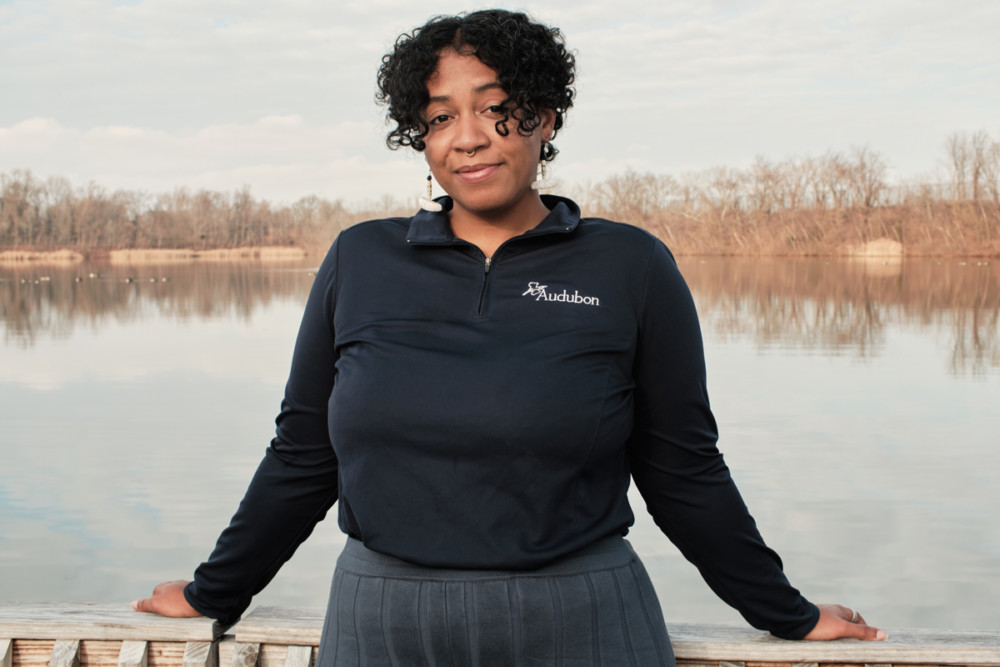
Bria Wimberly brings her love of aquaculture to Discovery Center as an environmental educator
Connecting visitors to the community is vital
Bria Wimberly was in middle school when her passion for nature began by attending Girl Scout camps. She once sold hundreds of boxes of cookies to afford to join a sailing trip in the Bahamas.
Living in Cobbs Creek, she visited her local park and attended nature classes at the environmental center. As a child, she wanted to understand how everything worked. Physics, biology, and chemistry became her favorite subjects in college.
Wimberly admires the mystery of nature – for example, she mentioned only 20% of the oceans are explored so far.
As an environmental educator for The Discovery Center since January 2020, Wimberly teaches adults and neighborhood children about the importance of our watersheds, bird conservation, and ecosystems. The National Audubon Society uses The Discovery Center as a facility. At Discovery, Wimberly works with two or three people, but Audubon Mid-Atlantic (PA and Maryland) is around 30 team members.
Discovery created a Community Engagement Committee to create pathways of communication and opportunities directly with the neighborhood. Recently, Wimberly spoke with Green Philly to explain her role, her love of aquaculture, and what she hopes children will learn from her about the environment.
Interview with Bria Wimberly, Environmental Educator
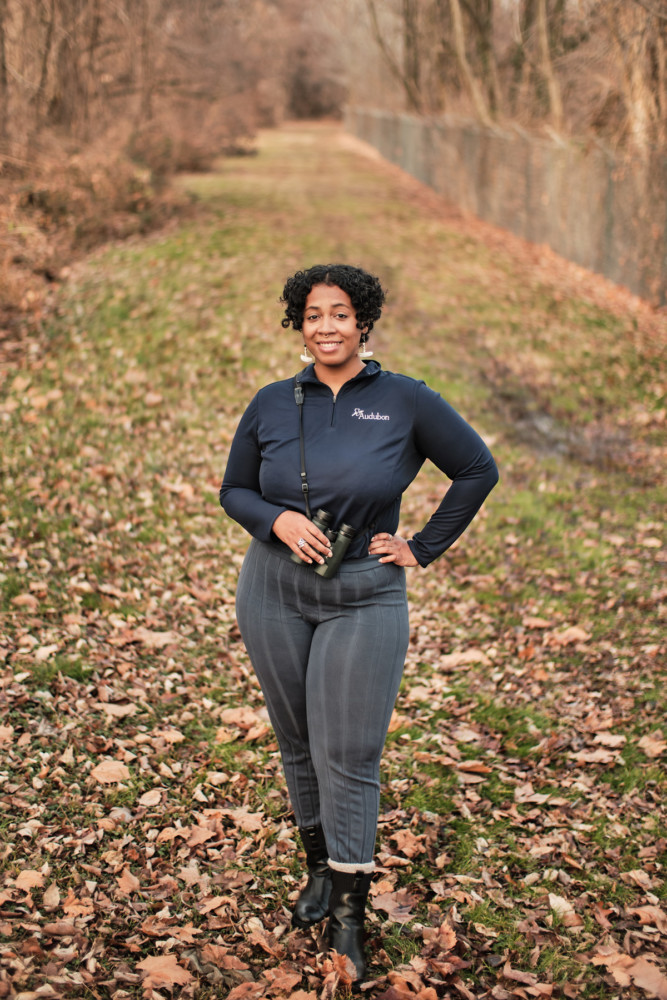
How did your upbringing in West Philadelphia impact your career?
Living in Cobbs Creek, I was lucky to have access to nature, whether it was healing or knowledge. It sparked my interest in getting more into science, specifically Marine Biology–that’s what I went to college for. Just having that green space right next to my homemade it easier for me to access it and expand my love for nature.
So, what brought you back to Philly after you received your degree in Marine Biology?
One of the things that I wanted to do required a higher skill of education, I only received my Bachelor of Science. I did not go to grad school yet (laughing), school was tolling at the time and not everyone is built for academia. I found out some opportunities here in Philly. So, I decided to come back here and see what I can get into. I’ve been here since 2015.
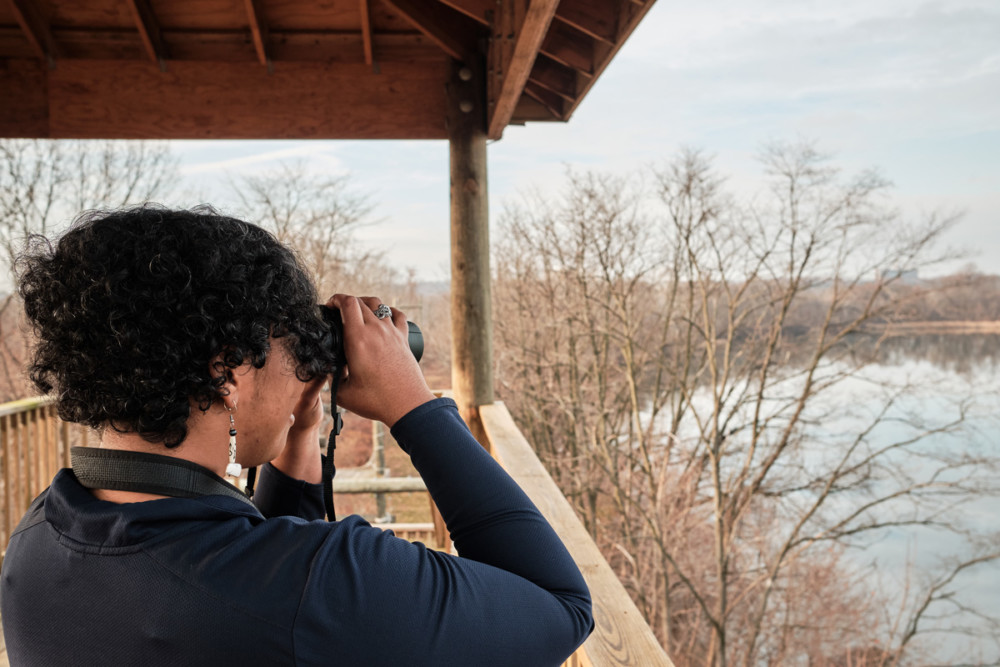
You spent some time at Fairmount Water Works. What did you learn about the environment that Green Philly readers should know?
I started working at Fairmount Water Works mainly because it tied in that watershed education I was looking for. I usually taught marine science back in college—as a volunteer for field trips that would come in but going into Water Works as an education contractor really opened my doors.
Instead of facilitating these lessons, we learned how to create them and how to connect them back to the community, making sure there are takeaways when the community comes to visit us. That was one of the biggest things I appreciated from Fairmont Water Works. They had a sort of structure that allowed contractors or consultants like me to have the freedom to create what resonates with Fairmont Water Works. I appreciated that flexibility and the challenge. We worked with a lot of schools within the school district, outside of the school district, and with regular visitors who came in on the weekend. And the audience I taught was diverse, another goal of mine.
I bet you had to learn a lot about the water area and then translate that to the students.
Yeah, we’re bridging that gap as unofficial science communicators (laughing). And luckily with the background information I got from college, it was easier to hop on board. Philadelphia is a freshwater system, and the urban history here is vaster than in Miami. It just took some time for me to catch up.
What is driving the work of you and your team locally in Philly?
Discovery Center is a three-party system. All three of us agree that connecting back to the community is priority. We have our own missions within each individual organization. For us, it’s bird conservation–planting trees, watershed education, policymaking, etc. We want to connect that back to the community in a way that benefits them. We also want to make sure they feel welcomed in this green space.
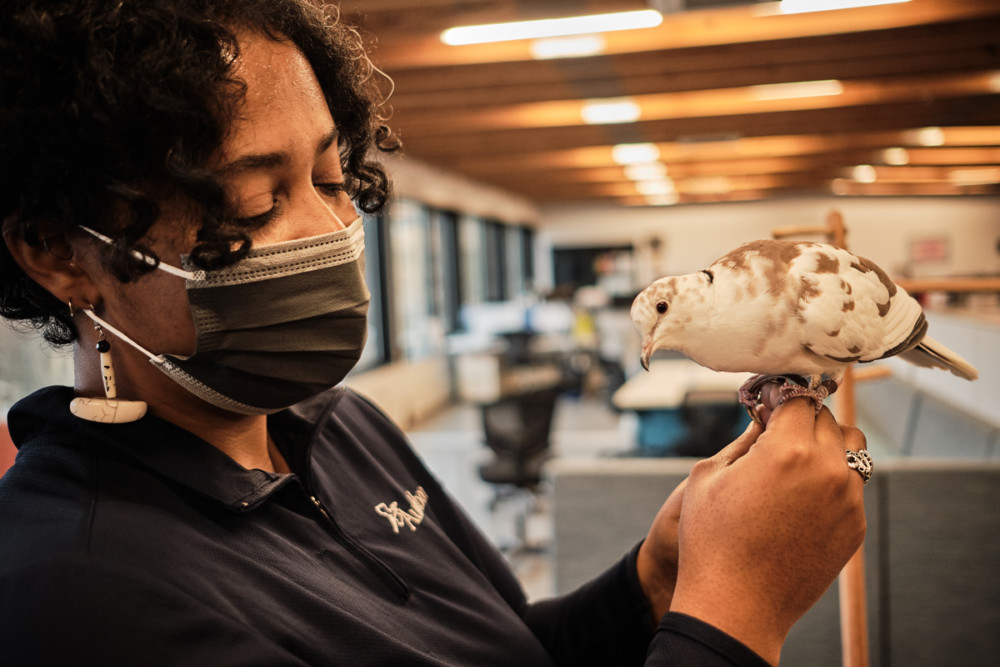
This is one of the few green spaces within the Strawberry Mansion community. It shut down in the ’90s after the city’s use of the reservoir. I can’t imagine not being able to go to my favorite park after years of living here. So, when we opened back up in 2018, one of the big missions was how can we make sure this community feels welcomed in coming here and feel like they have a say in what’s going on.
The results are inspiring: instead of doing a lot of science content like bird walks, we’ll do other things like film screenings, barbecues, yoga, dance classes, giving back to the community, providing space for the community to do as they please–finding those ties so everyone can feel comfortable coming here and be a step closer in learning about their environment and what they could do to help.
What do you want kids to learn from your Audubon education sessions?
I think the biggest thing would be stewardship–knowing how and why all our actions are connected. With our mussel volunteer program, they learn how to measure the mussels and take water quality measurements. I want to connect that back to their day-to-day life.
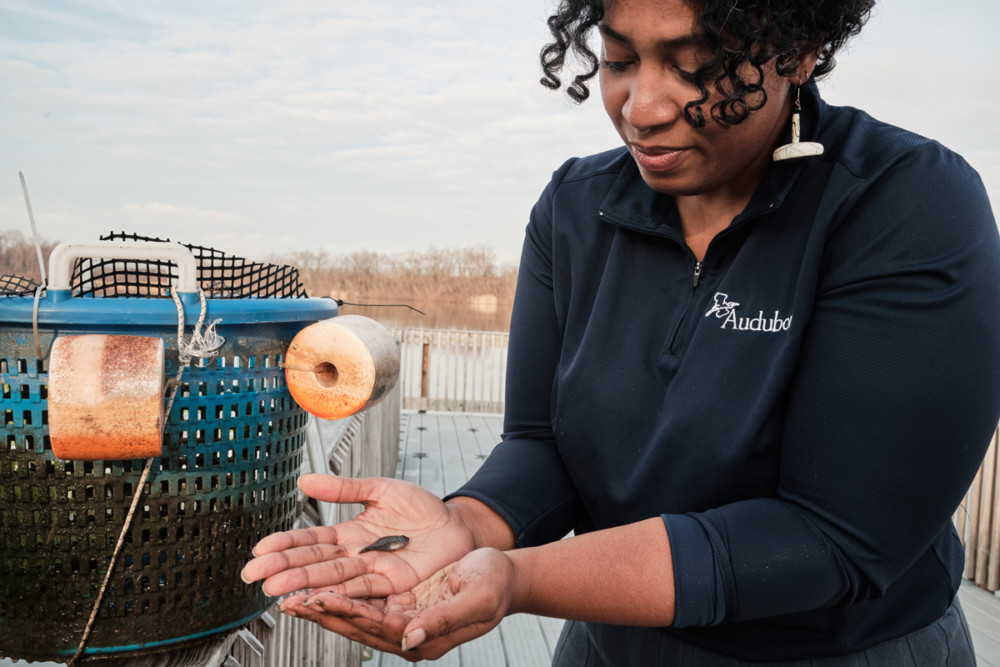
We want to reintroduce these mussels back into the waterways within the Delaware River watershed because we get water from this watershed and these mussels are great ecosystem engineers. They’re able to clean that water for us to drink and for other animals to live in too. Another example is curbing trash from going down our storm drains, so it doesn’t overflow our wastewater treatment plants and end up in the river, killing staple animals like freshwater mussels. So, talking about how it’s all connected.
Where do you see your career 10 years from now?
I really like being in the aquaculture setting. I enjoy watching things grow—mussels, plants, fish, etc. Just being in that space of conservation, but a more nurturing side to it. I also like to continue education and outreach—bringing people into green spaces and finding a way for them to connect is one of my favorite things to do. I’ll figure it out!
Cover photo: Alexandre da Veiga









